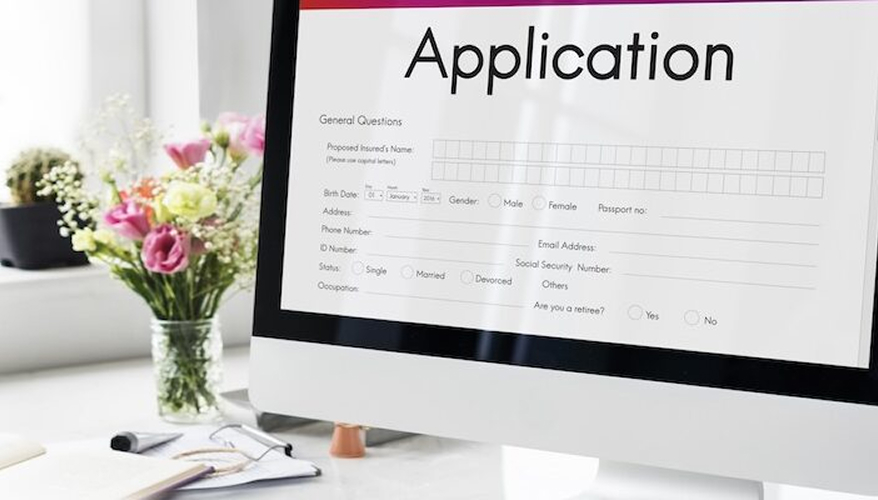Navigating the intricacies of the Work Permit (WP) application process in Singapore can be daunting for both employers and employees. Understanding the significance of Work Permits, which allow semi-skilled foreign workers to be employed in various sectors, is crucial for a smooth and successful application. This comprehensive guide aims to demystify the process, providing clear and actionable steps for both parties.
Understanding Work Permits in Singapore
Definition and Purpose
A Work Permit is a type of employment pass designed for semi-skilled foreign workers in specific sectors such as construction, manufacturing, marine, process, and services. Unlike other employment passes, the Work Permit is subject to specific sectoral regulations, including quota limits and levies.
Eligibility Criteria
- For Employers: Must be a registered business in Singapore with a valid Central Provident Fund (CPF) account and no outstanding issues with the Ministry of Manpower (MOM).
- For Employees: Must meet age (minimum 18 years) and nationality criteria specific to the sector. Additionally, the worker must not have a previous record of overstaying or illegal employment in Singapore.
Detailed Application Procedure
Pre-application Requirements
Before initiating the application, gather the following:
- For Employers: Business registration details, quota and levy balance, and a security bond.
- For Employees: Passport details, educational certificates (if required), and a medical examination report.
Online Application Submission
- Log into the MOM Online Portal: Employers need to log into the Work Permit Online (WPOL) system.
- Complete the Application Form: Fill out all necessary details accurately, ensuring no discrepancies.
- Submit Supporting Documents: Upload scanned copies of the required documents.
- Pay Application Fees: Complete the payment process online.
Processing Time and Status Checks
The typical processing time ranges from 1 to 7 working days. Employers and employees can check the status of their applications via the WPOL system using their login credentials.
Key Considerations and Best Practices
Quota and Levy Requirements
Employers in Singapore must adhere to the Dependency Ratio Ceiling (DRC), which sets a limit on the number of foreign workers a company can employ relative to its total workforce. The DRC varies across different sectors as follows:
| Sector | DRC |
| Construction | 83.3% |
| Process | 83.3% |
| Marine Shipyard | 77.8% |
| Manufacturing | 60% |
| Services | 35% |
For instance, if the DRC for the services sector is 35%, the total number of Work Permit and S Pass holders employed by a services company cannot exceed 35% of its total workforce.
Additionally, there are specific sub-quotas for hiring Work Permit holders from the People’s Republic of China (PRC):
- In the services sector, PRC Work Permit holders cannot exceed 8% of the total workforce.
- In the manufacturing sector, PRC Work Permit holders are capped at 25% of the total workforce.
Understanding the Foreign Worker Levy system is also crucial. This pricing mechanism regulates the number of foreign workers and is influenced by two main factors:
- The worker’s qualifications.
- The number of Work Permit or S Pass holders employed.
Levy rates vary by sector and can be checked on the Ministry of Manpower (MOM) website for the most up-to-date information.
Security Bond
Employers need to furnish a security bond of S$5,000 for each non-Malaysian worker they employ. This bond acts as a financial guarantee for the worker’s upkeep and eventual repatriation.
Medical insurance
As an employer, you are required to purchase and maintain medical insurance (MI) for each migrant worker you employ. The cost of this insurance cannot be passed on to the workers. You must also submit the insurance details online before the Work Permit can be issued.
The MI must cover inpatient care and day surgery, including hospital bills for non-work-related conditions. For policies starting on or after July 1, 2023, the coverage must be at least $60,000 per year for each Work Permit holder.
Post-Approval Procedures
Primary Care Plan (PCP)
Employers must complete the following steps:
- Purchase the PCP: After receiving the in-principle approval (IPA) or renewal letter, employers must buy the Primary Care Plan (PCP) for workers who:
- Stay in dormitories that house 7 or more workers.
- Work in the Construction, Marine, and Process (CMP) sectors.
- Declare the PCP Purchase: Before the Work Permit can be issued or renewed, employers must declare the purchase of the PCP on the Work Permit Online (WP Online) system.
Orientation Programs
Male non-Malaysian Work Permit holders in the Construction, Marine Shipyard, and Process (CMP) sectors with in-principle approval (IPA) must attend the Onboard programme at the Onboard centre immediately upon arrival in Singapore. This 3-day programme must be attended on the date of the confirmed Onboard slot.
Additionally, non-Malaysian Work Permit holders in the manufacturing sector, as well as the construction, marine shipyard, and process sectors, are required to attend the Settling-In Programme (SIP). This programme provides essential information about working and living in Singapore, safety measures, and employment rights.
Who Must Attend
- Manufacturing Sector: All first-time non-Malaysian Work Permit holders.
- CMP Sectors:
- All first-time non-Malaysian Work Permit holders.
- Returning non-Malaysian workers holding an IPA.
When to Attend
- Manufacturing Sector and Female CMP Workers: Within 2 weeks of arrival in Singapore.
- Male CMP Workers: At the Onboard centre upon arrival.
Medical Examinations
Foreign workers must undergo and pass a medical examination by a Singapore-registered doctor within 2 weeks of their arrival. The examination includes tests for infectious diseases and overall fitness for employment.
Issuance of Work Permit Card
Once approved, the Work Permit card is issued. Employers must ensure the worker registers their fingerprints and photograph at the MOM Services Centre.
Compliance and Renewal
Regulatory Compliance
Adherence to MOM regulations is critical. Employers must maintain accurate employment records, ensure timely salary payments, and comply with housing and safety standards.
Renewal Process
Work Permits are typically valid for up to 2 years. The renewal process should begin at least six months before the permit’s expiry. Employers must ensure all details are updated, including any changes in worker’s particulars or employment conditions.
Common Pitfalls and How to Avoid Them
Application Rejections
Common reasons for rejection include incomplete applications, discrepancies in submitted documents, and failure to meet quota or levy requirements. Ensuring all documents are complete and accurate is crucial.
Legal and Financial Repercussions
Non-compliance or fraudulent work permit applications can lead to severe penalties, including fines, imprisonment, and bans from hiring foreign workers. Maintaining honesty and transparency throughout the process is paramount.
Conclusion
Mastering the Work Permit application process in Singapore requires careful attention to detail and adherence to MOM regulations. By following the steps outlined in this guide, employers and employees can navigate the complexities of the process more effectively, ensuring a successful outcome.
If you need personalized assistance with your Work Permit application, contact our immigration agency today. Our experts are here to guide you through every step, ensuring a smooth and compliant application process. Let us help you navigate Singapore’s immigration landscape with confidence.








